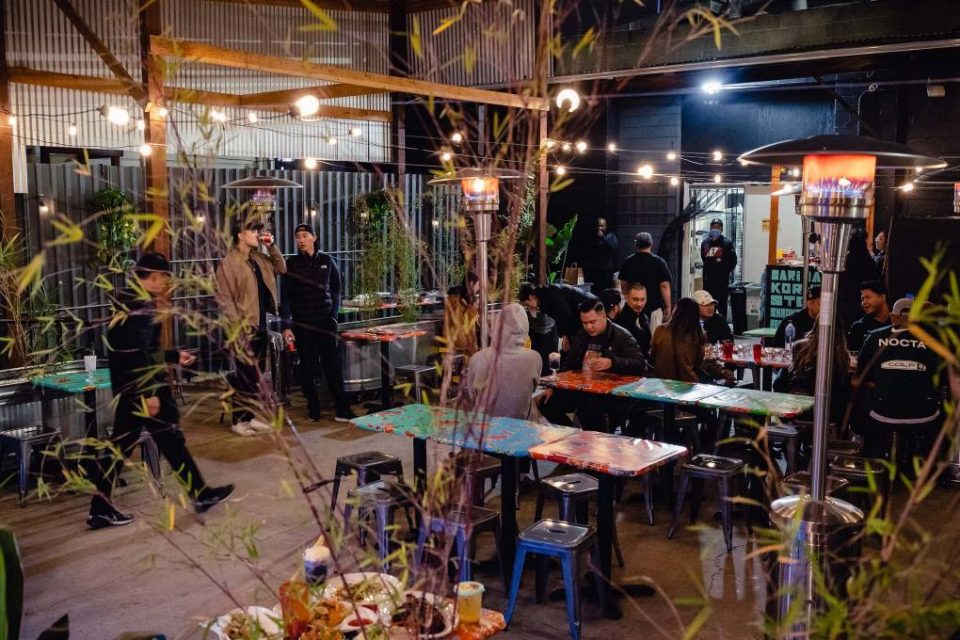As co-owner Eugene Lee (who also runs Noodle Belly with his partner Kevyn Miyata) puts it, “I like to think of our space as a turnkey solution for people like myself, who always wanted to dabble in the food world but don’t want to invest in a three-year, $6,000-a-month lease on a space to do it.”
Korner Bar bears some resemblance to another big trend that has proliferated during the pandemic: the ghost kitchen—an umbrella term for restaurants that don’t have any brick-and-mortar storefront and only exist in the virtual world of DoorDash and UberEats. Like a ghost kitchen, Korner Bar also houses multiple brands within a single large kitchen facility. Many of them do a brisk business via the delivery apps.
But Lee says he believes Korner Bar is the opposite of a ghost kitchen, which he sees as being these “huge, money-making cash-grabbing facilities.” The ghost kitchen approach, he says, is to cram as many vendors as you can into a gigantic, anonymous, warehouse-like building in order to generate as much rent as possible.
“Our facility shouldn’t be about that,” Lee says. “We want to highlight our community.”

By “our community,” Lee is referring, in part, to the diversity of Korner Bar’s vendor lineup, which largely pulls from the Bay Area’s communities of color. That didn’t necessarily come as a result of any kind of explicit outreach or requirement, Lee says. If anything, it was just the natural result of the diversity at the top of the company—for instance, Lee is Korean American; Tejeda is Filipino; Seggman is half Mexican. “Every single person here looks like me and my friends,” Lee says. “We might not be directly saying we want this type of customer. But if we say, ‘Let’s go out for lunch,’ people are going to say, ‘Let’s go for kalbi, let’s go for pho or banh mi.’”


